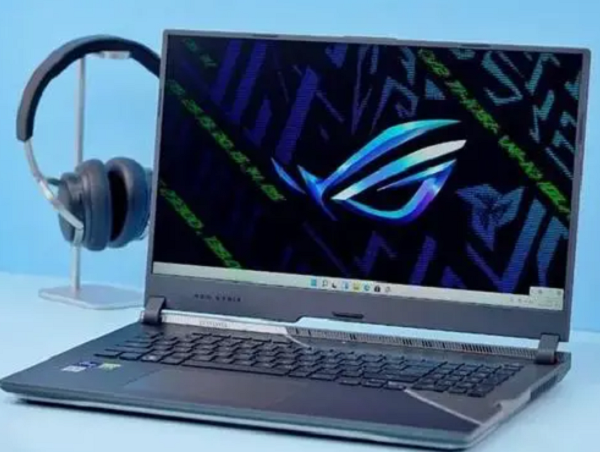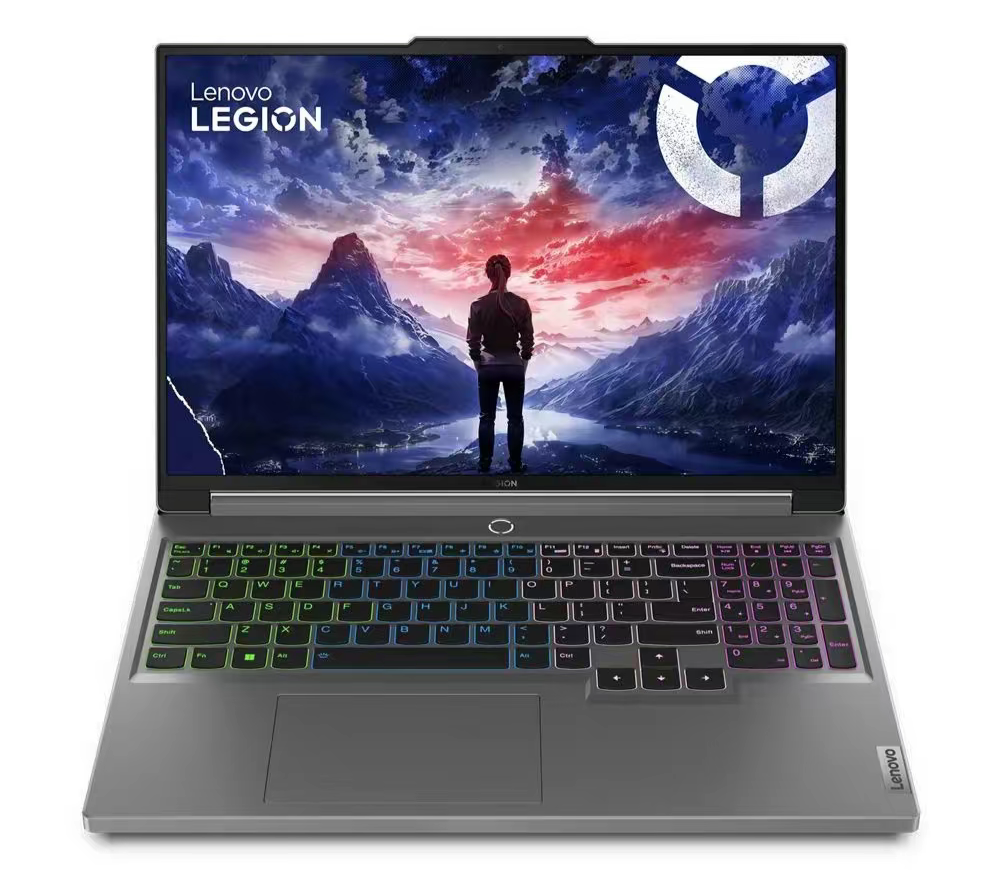What computer configuration is needed to study data science and big data?
1. CPU: It is recommended to use a multi-core processor, such as Intel Xeon or AMD Opteron, preferably with a high-frequency core. Memory: At least 16GB of memory is required. It is recommended to use ECC (Error-correcting code) memory to improve data accuracy and reliability.
2. Choose according to your financial strength: Lenovo ThinkPad, HP, Asus, Dell (DELL) and other big brands. In terms of configuration: memory first, solid state drive second, and CPU last.
3. Optical drive: Nowadays, if you buy a thin and light version of a computer, the optical drive is rarely used.
4. Java, front-end computer configuration: processor i5 or above, memory 8G or above (16G recommended), hard disk 256G or above, solid state drive is best, 64-bit Window system.
What configurations do computer professionals need to buy a laptop?
1. Configuration recommendations: CPU should be 4 cores and 8 threads or more, memory should be 8-16G, hard disk should be more than 1TB. If the budget is sufficient, it is recommended to choose a laptop with Laptops with independent graphics cards have higher performance.

#2. Choose according to your financial strength: Lenovo ThinkPad, HP, Asus, Dell (DELL) and other big brands. In terms of configuration: memory first, solid state drive second, and CPU last.
3. Students majoring in computer science need to buy a laptop with a good processor and graphics card to meet their computer learning needs. It is recommended that you buy a notebook with mainstream configurations. Among the notebooks with mainstream configurations, Lenovo’s Y460 series notebooks are the best.
4. In principle, computer science departments should give priority to performance, so the best solution is actually a high-performance desktop computer plus a thin and light laptop. It is completely achievable under the premise that the total price remains unchanged at 8,000. However, it is actually necessary to examine the specific conditions of the school dormitory, such as desk area, total power supply, power supply time, etc.
5. Lenovo savior. Students majoring in computer science have very high requirements for laptop hardware configuration when using laptops, so I prefer gaming laptops. There are many brands of gaming laptops, and the Lenovo Rescuer is also a very good series of gaming laptops.
6. Brand: When buying a laptop, it’s best not to just look for cheapness or high specifications. Brand guarantee is meaningful when purchasing, because companies with a good brand image usually make large investments in technology and maintenance services, and this is reflected in the price of the product.
What configurations do I need to buy a laptop for a computer major?
1. What configuration of laptop should I use for a computer major? In fact, the requirements for a laptop suitable for computer majors are not high. You only need to buy a processor and graphics card performance. A relatively good notebook can meet the needs of learning computers.
2. Huawei MateBook D 152022 Huawei MateBook D 15 is equipped with AMD Ryzen 5 5500U processor and AMD Radeon Graphics independent graphics card, with excellent performance.
3. Choose according to your financial strength: Lenovo ThinkPad, HP, Asus, Dell (DELL) and other big brands. In terms of configuration: memory first, solid state drive second, and CPU last.
How to configure a computer that specializes in big data technology and applications
The disadvantage is that the 16GB memory cannot be expanded, so you need to pay attention. In general, gaming notebooks such as the Savior r7000 and Shadow Elf 7 are definitely more than enough for big data professionals, enough to last you until graduation. If you pay more attention to thinness and lightness, and don’t have particularly high demand for 32GB, the same goes for the Xiaoxin pro16 Very good choice.
Optical disc drive: Currently popular with DVD-RW (DVD burning). From a usage and economic perspective. Pay attention to the stability of the optical drive reading the disk, the sound of the disk reading, the error correction ability when reading the disk, the speed of the optical drive, etc.
If the storage space is not enough, you can replace it with a 1T or 2T solid-state drive in the future, and then pull out the one inside the machine to use it as an external solid-state drive.
Easy to carry and excellent overall battery life. CPU: All processors have a model number. The latest CPU performance ladder diagrams are available online. You can know the CPU configuration based on the sequence of the ladder diagram. For notebooks that handle big data, it is recommended to choose models such as R5 and i5 or above. Simply judge the configuration formula: the more cores and threads, the better.
To learn big data technology, it is recommended to buy a computer worth about 4,000 yuan - notebook
1. Asus Wuwei 15 Evaluation: Asus is one of the well-known old computer manufacturers. ASUS Intrepid15 uses Intel processor, the processor model is i5-1240P, 12-core processor, 16 threads. Basically it uses the best CPU in this price range, 16GB memory, 512GB solid state drive, and is equipped with a 16-inch 1080P eye-protecting anti-glare screen.
2. Recommend Dell Inspiron 13Pro. Dell’s Inspiron 13Pro laptop is more suitable for office and study use. It uses an integrated graphics card design, and the body design is also relatively thin and light, so it can be easily put into a bag. It's totally OK inside.
3. Take a look at ASUS VivoBook15 VivoBook15 X has excellent portability, allowing you to carry it with you without feeling heavy.
4. With the blessing of alien technology genes, AWCC makes the game notebook full of soul. The industrial design is full of fighting passion and the internal heat dissipation is more efficient. If you want to buy a cost-effective and high-quality laptop, it is recommended to choose the Dell Game Box G15 12th Generation Intel Edition.
The above is the detailed content of Laptop configurations designed specifically for big data. For more information, please follow other related articles on the PHP Chinese website!
 2024年最新笔记本显卡天梯图Feb 22, 2024 pm 01:55 PM
2024年最新笔记本显卡天梯图Feb 22, 2024 pm 01:55 PM在2023年有了组新版的RTX40系显卡问世,因此不少用户都很纠结该怎么选择一个适合自己的显卡才会更有性价比,不同的档次产品对应的用户群体也是不一样的,详情可以查看下面的天梯图,找到你的需求定位,然后选择合适的价格即可。2024年最新笔记本显卡天梯图:2024最新桌面显卡天梯图:显卡前十名排行榜显卡相关知识一、集成显卡和独显显卡1、轻薄本一般都是集成显卡,集成显卡就是CPU附带的,也叫作核芯显卡,这种显卡的算力比较弱,无法处理大型的3D游戏,如果打游戏都会卡顿或者是闪退。2、独立显卡就是从CPU
 电脑自动更换锁屏壁纸Feb 14, 2024 pm 10:27 PM
电脑自动更换锁屏壁纸Feb 14, 2024 pm 10:27 PM联想拯救者笔记本锁屏自己设置的壁纸总是被自动切换,怎么办看清楚是锁...1、具体解决步骤如下:打开电脑,右击桌面空白处,从弹出选项中找到并选择个性化选择桌面背景,找到点击“浏览”选项,即需要替换的壁纸位置选择之前已经下载好的壁纸最后这样就改好,就行了。2、--1第1步点击个性化--在右击展开的选项中,点击个性化。2点击幻灯片放映!--2第2步点击幻灯片放映--在展开的背景界面中,点击幻灯片放映。3、如果你使用的是Windows10,请尝试在“开始”-“设置”-“个性化”-“背景”中将选项从动态切
 联想笔记本开启vtMar 02, 2024 am 10:07 AM
联想笔记本开启vtMar 02, 2024 am 10:07 AM联想笔记本怎么开启vt先重启电脑,在开机画面出来时不停按进入bios的电脑快捷键。进入到bios界面以后,通过键盘的方向键移动在—里找到VT选项,找到后通过键确定。联想win10电脑开启VT的方法是:打开控制面板,点击“硬件和声音”,然后点击“设备管理器”,在设备管理器中找到“系统设备”,右击“系统设备”,再点击“属性”,在新的窗口中找到“虚拟化支持”,将其打开即可。先关闭电脑进入进入BIOS模式;进入BIOS后,找到CpuConfiguration中的VirtuallizationTechno
 联想拯救者 Y9000X 2024 颜值电竞本发布:13999 元起,可选 RTX 4060/4070Feb 21, 2024 pm 05:22 PM
联想拯救者 Y9000X 2024 颜值电竞本发布:13999 元起,可选 RTX 4060/4070Feb 21, 2024 pm 05:22 PM本站1月17日消息,联想拯救者Y9000X2024颜值电竞本今日公布了售价信息,2月22日10点开启预售:i9-14900HX+RTX4060+32GB+1TB首发价13999元i9-14900HX+RTX4070+32GB+1TB首发价14999元该机定位“颜值电竞本”,提供冰魄白配色,采用AED阳极电泳工艺以及CNC精雕中框。该产品配备16英寸3.2K电竞屏,屏幕比例为16:10,支持100%DCI-P3广色域、165Hz刷新率、杜比视界、430nit亮度、X-Rite色彩管理、10bit色
 rog枪神6plus和拯救者y9000p哪个好Feb 22, 2024 am 09:34 AM
rog枪神6plus和拯救者y9000p哪个好Feb 22, 2024 am 09:34 AMrog枪神6plus和拯救者y9000p这两个一直是很多用户都非常纠结的,两者的性能都非常的不错,但具体来看也有一定的差别,很多用户不知道该怎么选择,其实主要还是看个人的需求。rog枪神6plus和拯救者y9000p哪个好答:两者各有优点,建议按照需求来选择。如果追求高配置高性能,就选择更高定位的ROG枪神6plus如果追求性价比,更在意实用性,那么就选择联想拯救者Y9000P1、这两款电脑的最大的区别就是定位不同。2、枪神6plus的定位肯定是要高于联想的,属于顶配级别的了,如果预算充足还是比
 技嘉主板重装系统Feb 25, 2024 am 08:10 AM
技嘉主板重装系统Feb 25, 2024 am 08:10 AM技嘉h61主板的电脑怎样用u盘重装系统1、将制作好的启动U盘插入电脑USB接口,开机或重新启动,按下启动热键F12;在弹出的启动项界面,按上下方向键选择U盘选项,一般为带USBFlash、USBStorage、USBHDD的选项,按Enter键进入。2、技嘉h61主板怎么用U盘装系统1制作好启动放U盘2就是准备设置启动U盘项了3可以安装系统了感觉关键的是你制作启动U盘和设置主板的问题。3、制作U盘启动盘下载u启动U盘装机工具并安装;连接空白U盘到usb接口,U盘为8G及以上;U盘启动盘制作工具读
 全新设计的联想拯救者 Y7000P 2024 游戏本即将在1月发布Jan 02, 2024 pm 10:56 PM
全新设计的联想拯救者 Y7000P 2024 游戏本即将在1月发布Jan 02, 2024 pm 10:56 PM本站12月25日消息,联想今日宣布新一代拯救者Y7000P游戏本1月份发布,亮点是全新模具和换“芯”升级。联想拯救者Y7000P2024游戏本的外观日前已经曝光,全新的模具采用了新的后出风设计。处理器预计升级为英特尔即将发布的酷睿14代HX系列。如上图所示,拯救者Y7000P2024游戏本采用了新的模具设计,后部出风口更大,两侧取消了出风口。接口方面,拯救者Y7000P2024后置方口电源接口和HDMI接口,左侧是一个USB-A、两个USB-C和一个3.5mm音频接口,右侧包括两个USB-A、一
 能玩游戏的笔记本推荐Feb 18, 2024 am 08:10 AM
能玩游戏的笔记本推荐Feb 18, 2024 am 08:10 AM玩游戏选什么牌子的游戏笔记本好1、游戏本一线品牌有:联想、惠普、戴尔、宏碁、华硕。联想联想笔记本电脑的性价比机型比较丰富,小新系列和拯救者系列都是真香机型。拯救者R7000P是游戏本电脑首选。Pro14配置均衡强劲,屏幕素质非常优秀。2、雷神911Pro(RTX2080Max-Q版)游戏本这款游戏笔记本价格在两万左右,不知道什么笔记本玩游戏好,玩家们一定要知道这一款,它的厚度为20mm,搭载了512GSSD和144Hz3ms电竞屏幕,不仅机身外观做工精致,而且性能上也非常出色。3、玩游戏用灵越游


Hot AI Tools

Undresser.AI Undress
AI-powered app for creating realistic nude photos

AI Clothes Remover
Online AI tool for removing clothes from photos.

Undress AI Tool
Undress images for free

Clothoff.io
AI clothes remover

AI Hentai Generator
Generate AI Hentai for free.

Hot Article

Hot Tools

ZendStudio 13.5.1 Mac
Powerful PHP integrated development environment

SAP NetWeaver Server Adapter for Eclipse
Integrate Eclipse with SAP NetWeaver application server.

EditPlus Chinese cracked version
Small size, syntax highlighting, does not support code prompt function

DVWA
Damn Vulnerable Web App (DVWA) is a PHP/MySQL web application that is very vulnerable. Its main goals are to be an aid for security professionals to test their skills and tools in a legal environment, to help web developers better understand the process of securing web applications, and to help teachers/students teach/learn in a classroom environment Web application security. The goal of DVWA is to practice some of the most common web vulnerabilities through a simple and straightforward interface, with varying degrees of difficulty. Please note that this software

Atom editor mac version download
The most popular open source editor







